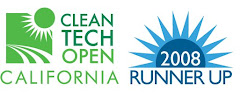 UK Government Unveils Plan To Slash Household CO2 By 2050
UK Government Unveils Plan To Slash Household CO2 By 2050| Sourced From Carbon Offset Daily & EasyBourse |
LONDON -(Dow Jones)- The U.K. government Thursday unveiled plans to reduce household emissions of carbon dioxide to almost zero by 2050 through energy efficiency measures and the use of renewable and low-carbon heating and power sources.
The plans, which are being put out to consultation for 12 weeks, include providing cavity wall and loft insulation for all suitable properties by 2015, extending the Carbon Emissions Reduction Target scheme to 2012 and rolling out low-cost home energy audits.
The government wants to reduce carbon emissions from the household and domestic sector, which accounts for 27% of the total, to achieve its targeted 80% cut in overall emissions by 2050. The U.K. also has a binding European Union target to boost renewable energy use to 15% by 2020 from around 2% now.
“Energy efficiency and low-carbon energy are the fairest routes to curbing emissions, saving money for families, improving our energy security and insulating us from volatile fossil fuel prices,” Energy and Climate Change Secretary Ed Miliband told a news conference.
Householders would be encouraged to install energy efficiency measures and low-carbon heat and power sources such as solar panels, combined heat and power boilers and ground source heat pumps through the feed-in-tariff and the renewable heat incentive.
The feed-in-tariff for small scale electricity generation is due to start in April 2010 and the renewable heat incentive, which is to be partly funded by utilities, is due to begin in 2011, Miliband said.
The CERT scheme already has funding of an additional GBP350 million from utility companies and the government is looking to extend the scheme to 2012 and increase the current energy efficiency scheme by 20%.
It is hoped that communities will also get involved in projects such as district heating which could use more efficient CHP technology and renewable energy sources such as biomass, Miliband said.
The Renewable Energy Association welcomed the government’s heat and energy efficiency strategy but said the RHI and feed-in-tariff needed to be introduced together by 2010 at the latest.
“Heat is the biggest use of energy in the U.K. and renewable heat technologies are often cheap, allowing households to protect themselves from dramatic fluctuations in gas bills. In addition the renewable heat industry offers huge potential for immediate job creation,” the REA said.
The U.K.’s leading business organization, the Confederation of British Industry, said the plan for households needed to be extended across other sectors of the economy.
“Business has the potential to deliver massive savings as a provider of energy efficient solutions but we need to see clearer measures to kick-start the move towards a low-carbon recovery,” said Neil Bentley, CBI’s director of business environment.







No comments:
Post a Comment